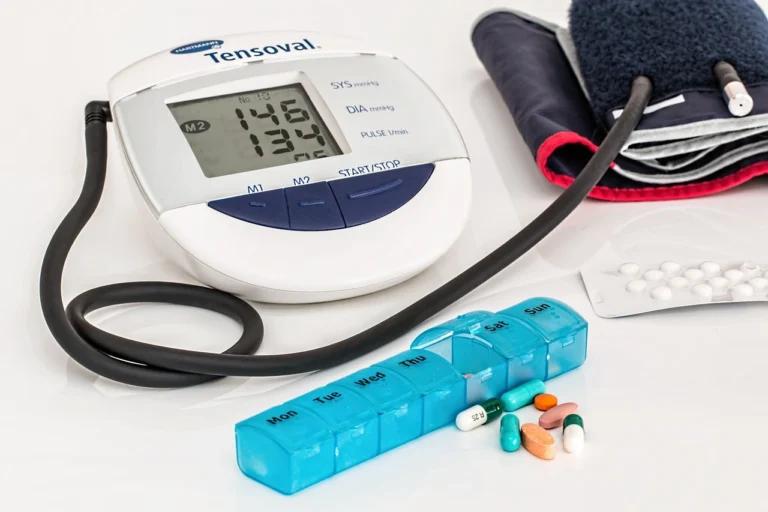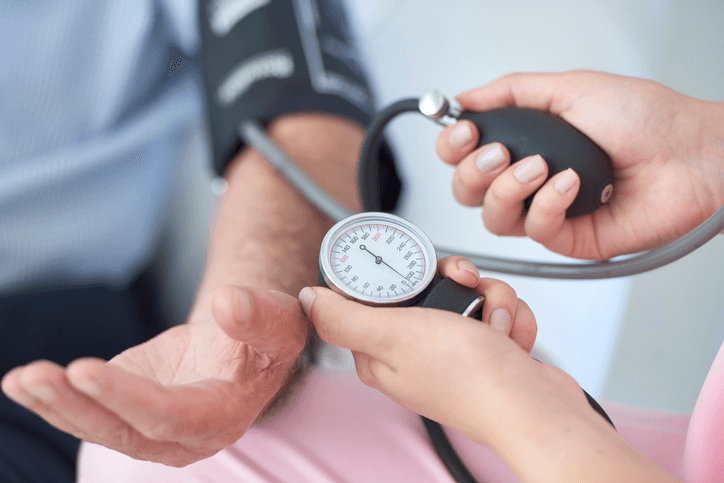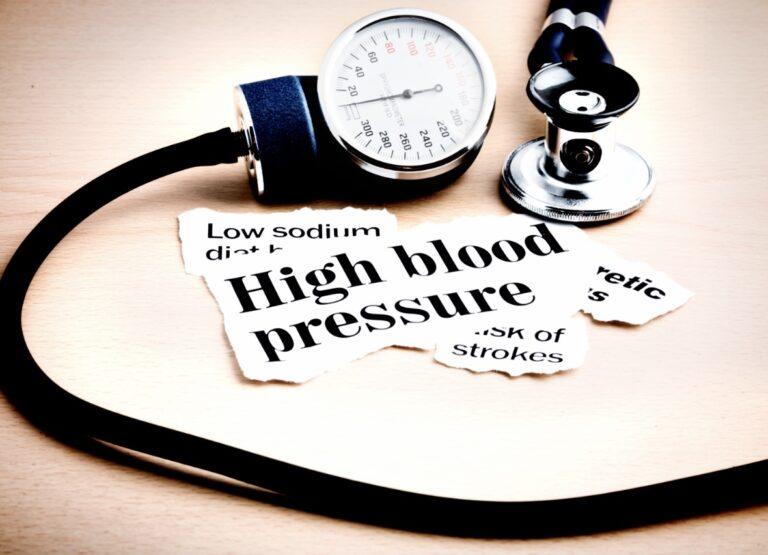
Are you one of the millions of people in the UK who suffers from high blood pressure? You’re not alone. In the UK around 1 in 3 adults has high blood pressure. But what are the causes? And more importantly, what can you do to lower your blood pressure and improve your health? In this blog post we’ll explore the causes of high blood pressure and provide tips on how to reduce your risk. Keep reading to learn more.
What are the main causes of high blood pressure?
High blood pressure or hypertension is a common condition that occurs when the force of the blood flowing through the blood vessels is too high. While anyone can develop hypertension, certain risk factors can increase your chances of developing the condition.
There are two types of high blood pressure classed as:
- Primary hypertension
- Secondary hypertension
Primary hypertension
Primary (also called essential) high blood pressure is the most typical type and there is no known cause for it. However, it is thought to be caused mainly by dietary and lifestyle factors and certain risk factors. These risk factors include:
- High cholesterol
- Smoking
- Drinking alcohol
- Obesity
- Excessive salt consumption
- Ethnic background (black African or black Caribbean origin are at higher risk)
- Having a family history of hypertension and cardiovascular disease
Secondary hypertension
In a small number of people, high blood pressure has an identifiable cause known as secondary hypertension. Certain health conditions can also lead to secondary high blood pressure:
- Kidney disease
- Sleep apnea
- Diabetes
- Thyroid or adrenal gland problems
- Taking certain medications e.g. birth control pills
Fortunately, there are lifestyle changes that you can make to help lower your risk of developing hypertension. These changes include eating a healthy diet, exercising regularly and maintaining a healthy weight. If you have risk factors for hypertension or you are already diagnosed with the condition, it’s important to meet with your doctor to discuss treatment options.
What is the normal blood pressure range?
A blood pressure reading is taken on a blood pressure monitor. A blood pressure test is carried out by your doctor or practice nurse. An electronic home blood pressure monitor can be purchased to track your blood pressure levels continually. A blood pressure cuff is wrapped around your arm so a blood pressure monitor can measure your systolic and diastolic blood pressure.
Blood pressure is measured in two numbers, systolic and diastolic. Systolic blood pressure, which is the top number, measures the force of blood flow when your heart beats. Diastolic blood pressure, which is the bottom number, measures the force of blood flow when your heart rests between beats. If either of these numbers is higher than it should be, you have high blood pressure.
As a general guide the NHS consider:
- High blood pressure to be 140/90 mmHg or higher (or 150/90 mmHg or higher if you’re over the age of 80)
- At the risk of developing high blood pressure between 120/80 mmHg and 140/90 mmHg
- Ideal blood pressure to be between 90/60 mmHg and 120/80 mmHg
Severely elevated blood pressure is known as a hypertensive crisis and is a medical emergency when levels are:
- Systolic: higher than 180 mmHg
- Diastolic: higher than 110 mmHg
Blood pressure in this range will cause headaches and nosebleeds.
Treatment for high blood pressure
There are two main options to lower blood pressure:
Changes to lifestyle
This would involve adopting a healthy lifestyle eating a healthy diet, reducing salt intake, increasing consumption of fruit and veg, increasing physical activity, aiming for a healthier weight, reducing alcohol consumption, limiting caffeine intake and stopping smoking.
Medication
The choice of blood pressure medication will depend on which option is best for you after discussion with your healthcare professional. Your age, the condition being treated, how high your blood pressure is, other medical or health problems you have and your ethnicity are factors that will be taken into consideration when medication is prescribed.
There are many prescription drugs available to your doctor, these include:
- Diuretics such as metolazone and hydrochlorothiazide
- Alpha-blockers such as doxazosin, prazosin and terazosin
- Beta-blockers such as atenolol, bisoprolol and propranolol
- ACE (angiotensin-converting enzyme) inhibitors such as enalapril, lisinopril, perindopril and ramipril
- ARB (angiotensin receptor blockers) such as candesartan, irbesartan, losartan and valsartan
- CCB (calcium channel blockers) such as amlodipine and felodipine
You may experience side effects if you take these medications, but they are normally short-lived. Always contact your healthcare provider if side effects are troublesome.
What are some of the symptoms of high blood pressure?
You may not be aware of having high blood pressure until it is checked as part of your NHS Health Check, at a GP/Nurse appointment or possibly at a pharmacy, as the symptoms are not obvious. This is why the condition is sometimes called the “silent killer”.
The following can be symptoms of high blood pressure:
- Blurred vision
- Nosebleeds
- Shortness of breath
- Chest pain
- Dizziness
- Headaches
Persistent high blood pressure can lead to several different medical conditions due to extra pressure exerted on artery walls, the heart, eyes, kidneys and other organs of the body. The following conditions can develop:
- Heart disease
- Heart attacks
- Strokes
- Heart failure
- Kidney failure
High blood pressure is a serious condition that can lead to the development of other diseases. If you have been diagnosed with high levels, taking small steps now could help reduce your chances for long-term complications in later life.
How do you reduce the risk of developing high blood pressure?
Thankfully there are some ways to help reduce elevated blood pressure these include the following:
- Reducing caffeine intake
- A healthy diet
- Eating foods rich in potassium, calcium, and magnesium
- Reducing weight
- Reducing alcohol intake
- Stop smoking
- Reducing the amount of salt in your diet
- Regular physical activity
- Attending regular medical checkups
- Track your progress at home with a home blood pressure monitoring kit
- If your GP has prescribed blood pressure medication, take it regularly as prescribed
Further help
This short guide can not replace medical advice from a GP or hospital specialist. Please seek further advice from your health care professional if you are concerned about symptoms, side effects and advice on controlling high blood pressure. Always inform your GP of all prescription medications you take, including over-the-counter meds and supplements.
Sources
Medical Disclaimer
NowPatient has taken all reasonable steps to ensure that all material is factually accurate, complete, and current. However, the knowledge and experience of a qualified healthcare professional should always be sought after instead of using the information on this page. Before taking any drug, you should always speak to your doctor or another qualified healthcare provider.
The information provided here about medications is subject to change and is not meant to include all uses, precautions, warnings, directions, drug interactions, allergic reactions, or negative effects. The absence of warnings or other information for a particular medication does not imply that the medication or medication combination is appropriate for all patients or for all possible purposes.









